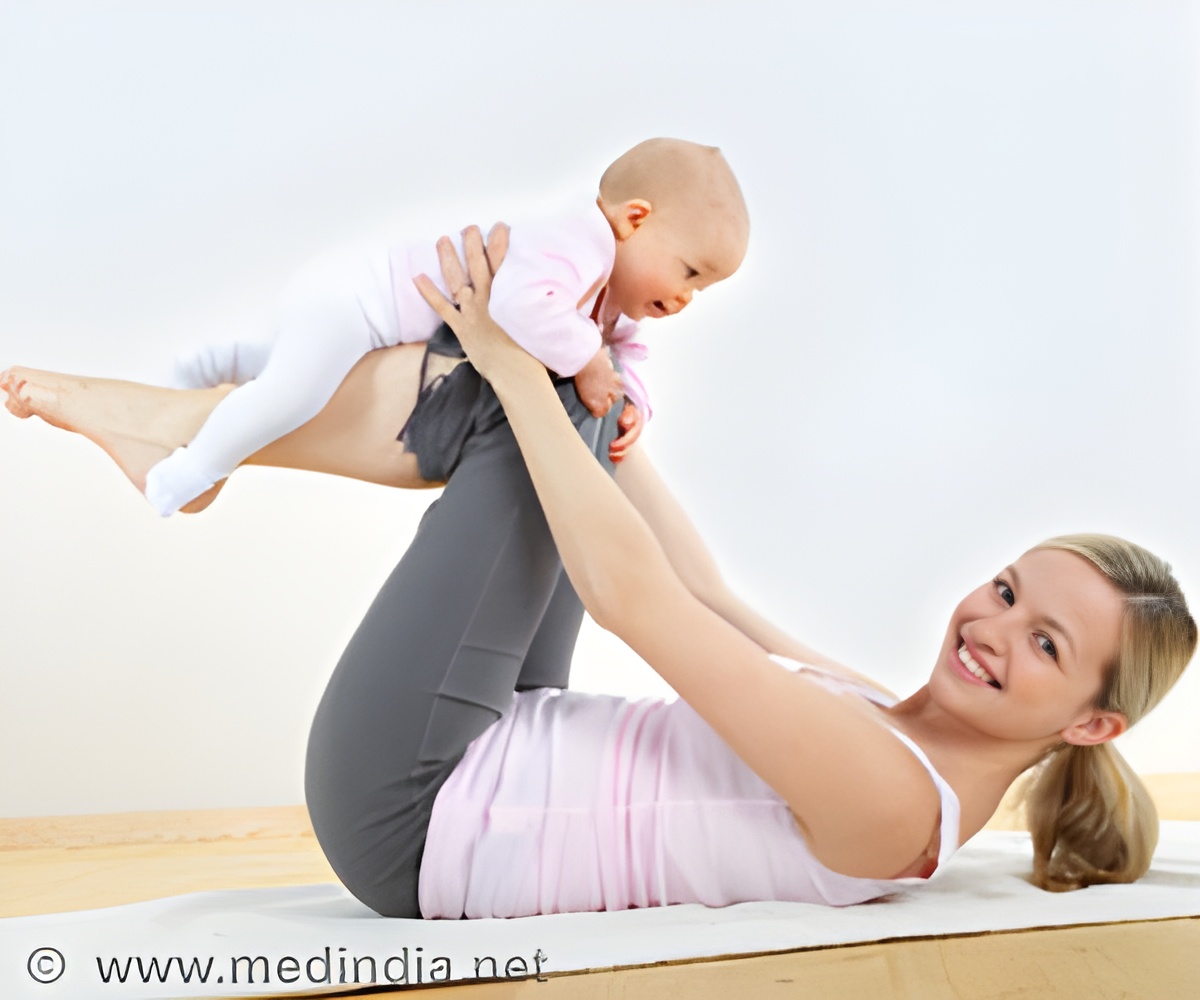Encouraging new moms to fit into any kind of physical activity could be the best approach for easing back after giving birth.

That's according to Mailey's study. "Specific exercise programs can seem like an insurmountable barrier to new moms," Mailey said.
"The results of this study suggest that the idea of encouraging new moms to fit in any kind of activity any way they can might be the best approach for easing back into exercise after giving birth."
As part of the intervention study, Mailey hosted workshops for mothers who had given birth between six weeks to 12 months before the start of the study to discuss strategies for increasing physical activity.
All participants wore accelerometers for a week to measure activity before the workshops, immediately after the workshops and six months later. Mailey also specifically measured mothers' perceptions of barriers to exercise.
"Even people who were really active before having kids tend to decrease their physical activity after having kids because they prioritize the baby's needs first," Mailey said. "In the workshops, we talked specifically about guilt and the idea that doing something for yourself is not selfish, it actually might help you be more patient or have more energy for your kids."
Advertisement
"It's difficult for a mom to get out of this mindset that her main role is to care for her family," Mailey said. "In the workshops, we talked about how that didn't necessarily need to be at odds with exercising. Being active might actually help moms be better equipped to care for their family by enjoying some of the mental health benefits of exercise."
Advertisement
In the flexible group, she discussed the importance of finding an activity that the moms enjoyed doing and talked about how that activity can be broken into three 10-minute bouts of activity if needed instead of one 30-minute session a day. She also advised moms in the flexible group to set realistic measurable goals.
For example, the 10,000 steps guideline may be too much for new moms. Overall, the workshops gave mothers support and strategies to overcome barriers, but Mailey also tried helping mothers see exercise differently.
"Modeling healthy behaviors for our children and talking positively about exercise will help them have a healthy view of exercise, what it is and what it is for," Mailey said. The study is published in the Journal of Health Psychology.
Source-ANI











